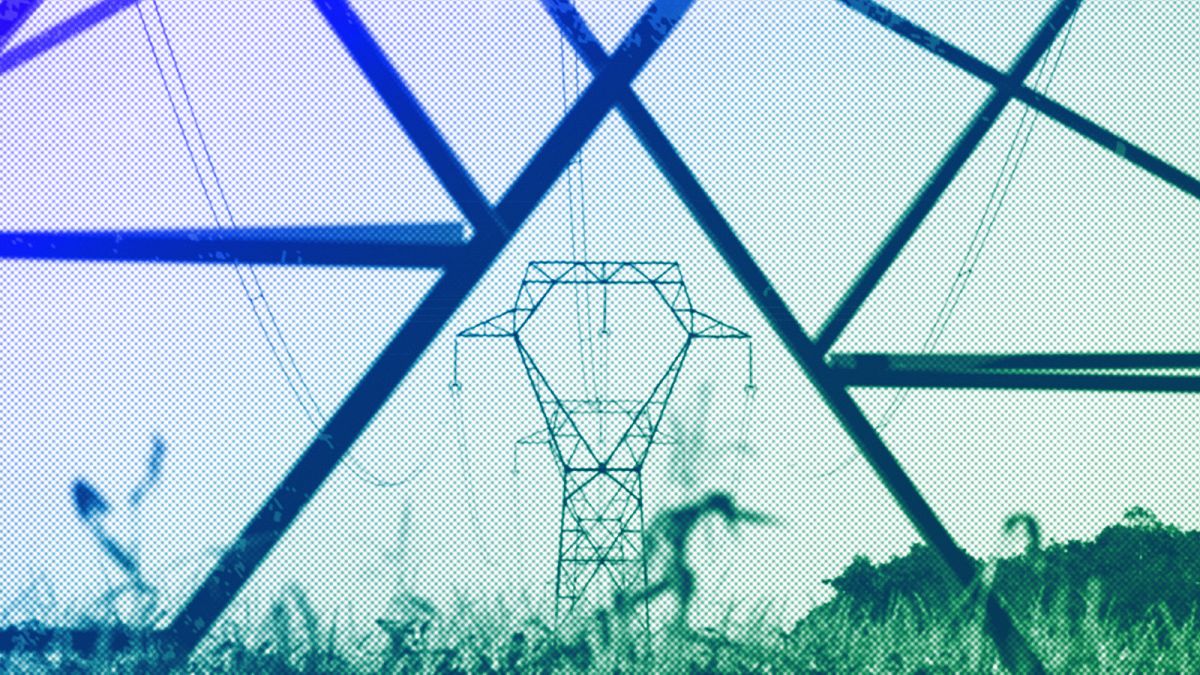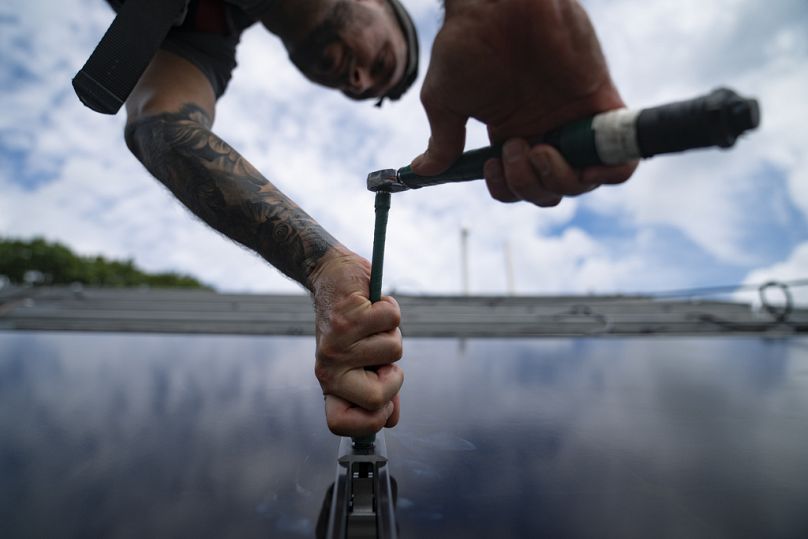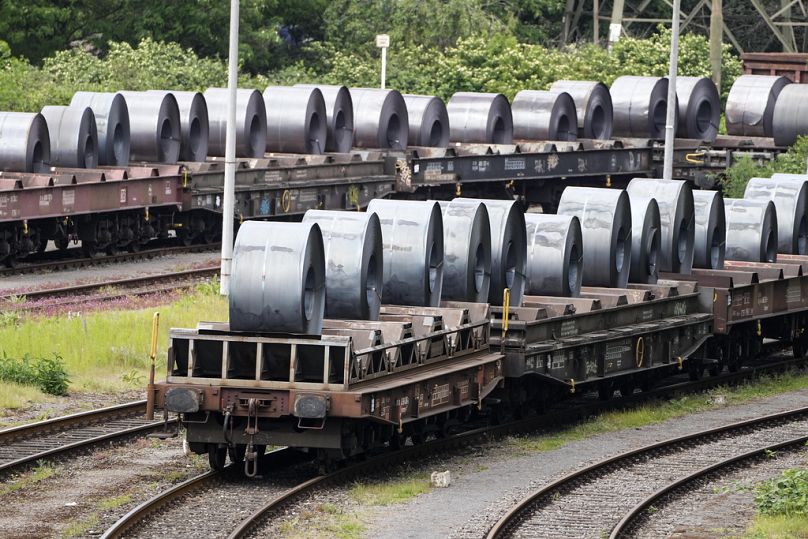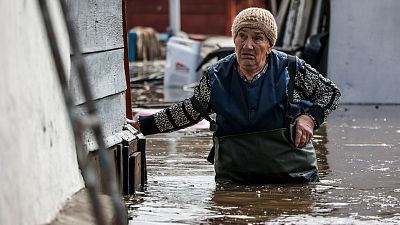A competitive clean industrial strategy is not just a necessity; it is a strategic imperative. And as such, it requires the financial means to be delivered, Hernan del Valle writes.
With pivotal elections around the corner, Europeans are wrestling with a cost-of-living crisis and heightened anxiety over the health of our planet.
The EU's climate agenda must endure and be seen to provide answers to our most pressing concerns rather than undermining them.
Placing a clean industrial transformation at the heart of the European economic and political consensus is therefore imperative.
Delivering a shift in industry that's powered by renewables and focused on energy and material efficiency, is crucial for achieving greater strategic autonomy, spurring economic growth, and promoting competitiveness.
Yet, the EU's recent funding cut to the Strategic Technologies for Europe Platform (STEP) not only sends the wrong investment signals but jeopardises Europe's vision of a thriving industrial base that advances citizen well-being.
To foster deeper resilience, a comprehensive industrial strategy must also address the dual challenges of decarbonising heavy industry and deploying clean technologies at an accelerated pace.
Decarbonisation targets for this decade, 2040, and beyond, serve as crucial markers, demanding an agile EU economy responsive to global competition and resilient to political shifts.
There is growing concern, however, that tackling global competition with state aid risks the emergence of a two-speed industrial Europe, favouring countries with the deepest pockets.
This would ultimately weaken Europe's single market and its ability to broker a level playing field for domestic producers.
We need industrial pathways that respect the autonomy of member states, harness the utility of the entire bloc, and emulate the cooperation found in other value chains like automotive and aircraft manufacturing.
Innovation as the cornerstone
The EU's Net Zero Industry Act (NZIA) — being finalised this month — should provide the regulatory framework for cleantech innovation to flourish by streamlining market access and reducing bottlenecks in project application.
This would enable greater electrolyser production for heavy industry, and support battery and EV makers in the face of growing competition.
In the near term, the transition to a decarbonised economy demands an accelerated uptake of electrification. The deployment of energy-efficient heat pumps for homes and businesses shows encouraging trends.
Building on the gains already made, we need to ramp up the deployment of renewable energy and upgrade Europe's electrical grids.
Support for new carbon capture technologies and increased CO2 storage is a positive step forward to tackle unavoidable emissions.
It is equally logical to prevent pollution in the first place with robust circular measures, estimated to be worth €12 billion by 2030.
A skilled workforce is also essential. Critical labour supply shortages for electrical installers, vital to the transition, have reached 96,000 in Germany alone. Addressing training shortfalls across sectors has become a matter of urgency.
Smart investments shape markets
Leveraging the strength of the internal market is essential to give European clean manufacturing a competitive boost.
As public budgets are stretched, Europe needs to be laser-focused on the type of strategic technologies that offer the best returns, can be rapidly scaled, and reduce dependency on global supply chains.
Capital costs for carbon-cutting technologies are dramatically reduced by smart public sector spending. Public procurement, which accounts for 14% of EU country budgets on average, is a neglected tool in the transition.
Moreover, public procurement rules must ensure the carbon footprint is a core criterion in public bidding to level the playing field and create demand for cleaner industrial products.
Broadening the application of the EU's Innovation Fund to support roll-out measures would also help achieve Europe's domestic production targets, with extra money earmarked from EU Emission Trading System revenues to fill up the pot.
Other financing mechanisms should be explored further, such as market-based incentives like Contracts for Difference that can ensure fixed energy costs for manufacturers in uncertain times.
Public policy and investment therefore play a key role in shaping markets, aligning private investment to support industry decarbonisation.
More funding, not less
There is only so much that existing budgets can do.
New financial instruments, like a Clean Tech Investment Fund, would underwrite an EU industrial plan and provide economic cohesion.
However, on 1 February, EU leaders announced they are slashing funding to STEP from €10bn to €1.5bn, while cutting a further €2bn in other development and climate investments.
Now is not the time to step back. Identifying funding opportunities for clean tech through the Multiannual Financial Framework will be vital to ensure the EU's Green Deal has the budget to be implemented.
This should be a commitment of the next EU Commission and championed by member states, aware of the impact EU policies have on its role as a climate leader in the world.
Europe stands at a pivotal moment in its industrial evolution. A competitive clean industrial strategy is not just a necessity; it is a strategic imperative. And as such, it requires the financial means to be delivered.
By respecting the competencies of member states and fostering a collaborative approach, Europe can not only decarbonise its heavy industry but also lead the world in clean tech innovation.
It is time to turn aspirations into action, ensuring that Europe's industrial future is both environmentally sustainable and globally competitive.
Hernan del Valle is Executive Director of Mobility, Industry and Mediterranean Programmes at the European Climate Foundation.
At Euronews, we believe all views matter. Contact us at view@euronews.com to send pitches or submissions and be part of the conversation.





